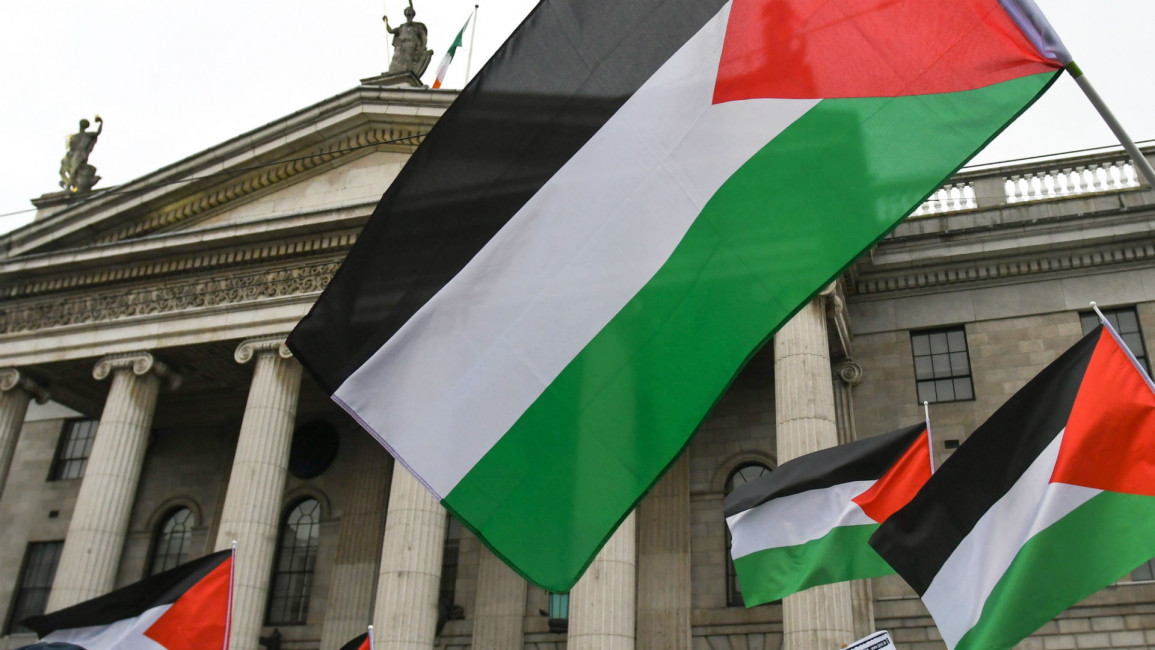Ireland approves landmark bill criminalising trade with Israeli settlements
The bill, submitted by Senator Frances Black, was approved by a vote of 30-13, having been advanced in a July vote of 25-20.
It will be enacted once approved by the lower house of parliament, making Ireland the first EU country to impose such a ban on Israeli settlements.
"Incredible - the Occupied Territories Bill has just passed all stages in Seanad Éireann! Ireland can be the first EU country to end trade in illegal #SettlementGoods," Black wrote on Twitter minutes after the vote.
"It now goes to Dáil for agreement, & with such huge support we'll make this vital bill law!"
The legislation declares it an offence for a person to "import or attempt to import settlement goods", "sell settlement products", or "provide services to Israeli settlements".
The extraction of resources from a "relevant occupied territory" would also be deemed an offence, according to the bill.
Twitter Post
|
Anyone found guilty of violating the legislation would be committing a crime punishable by up to five years in prison, and a fine of €250,000 ($283,000).
PLO Secretary General Saeb Erekat praised Ireland for taking a stand against "colonial settlement activities" and "Israeli occupation war crimes", saying the bill shows the country's commitment to peace and the two state solution.
Israel's Foreign Ministry spokesperson Emmanuel Nahshon labelled the Irish Senate bill a "hateful boycott initiative" and the "most extreme anti-Israel piece of legislation in Europe".
Israel has built over 200 settlements in the West Bank, East Jerusalem and Golan Heights since capturing and occupying the Palestinian and Syrian territories in 1967.
Around 400,000 Israelis live in West Bank settlements, which range in size from tiny hamlets to large towns. A further 200,000 live in settlements in occupied east Jerusalem.
The international community considers the settlements to be illegal and a key barrier to peace between Israelis and Palestinians.
In 2015, the European Union ruled that all products made in Israeli settlements and imported to Europe could not be labelled "Made in Israel", and must include the word "settlement" under EU consumer law.
Local NGOs reported that Israeli companies have circumvented the labelling regulations by bringing settlement-made agricultural and dairy produce to processing facilities inside Israel in order to present their goods as "Made in Israel" and maintain access to the EU's market.
Rights groups have long called for a ban on the import of goods produced in illegal Israeli settlements to help end multimillion-pound profits which they say have fuelled mass human rights violations against Palestinians.


![President Pezeshkian has denounced Israel's attacks on Lebanon [Getty]](/sites/default/files/styles/image_684x385/public/2173482924.jpeg?h=a5f2f23a&itok=q3evVtko)



 Follow the Middle East's top stories in English at The New Arab on Google News
Follow the Middle East's top stories in English at The New Arab on Google News


